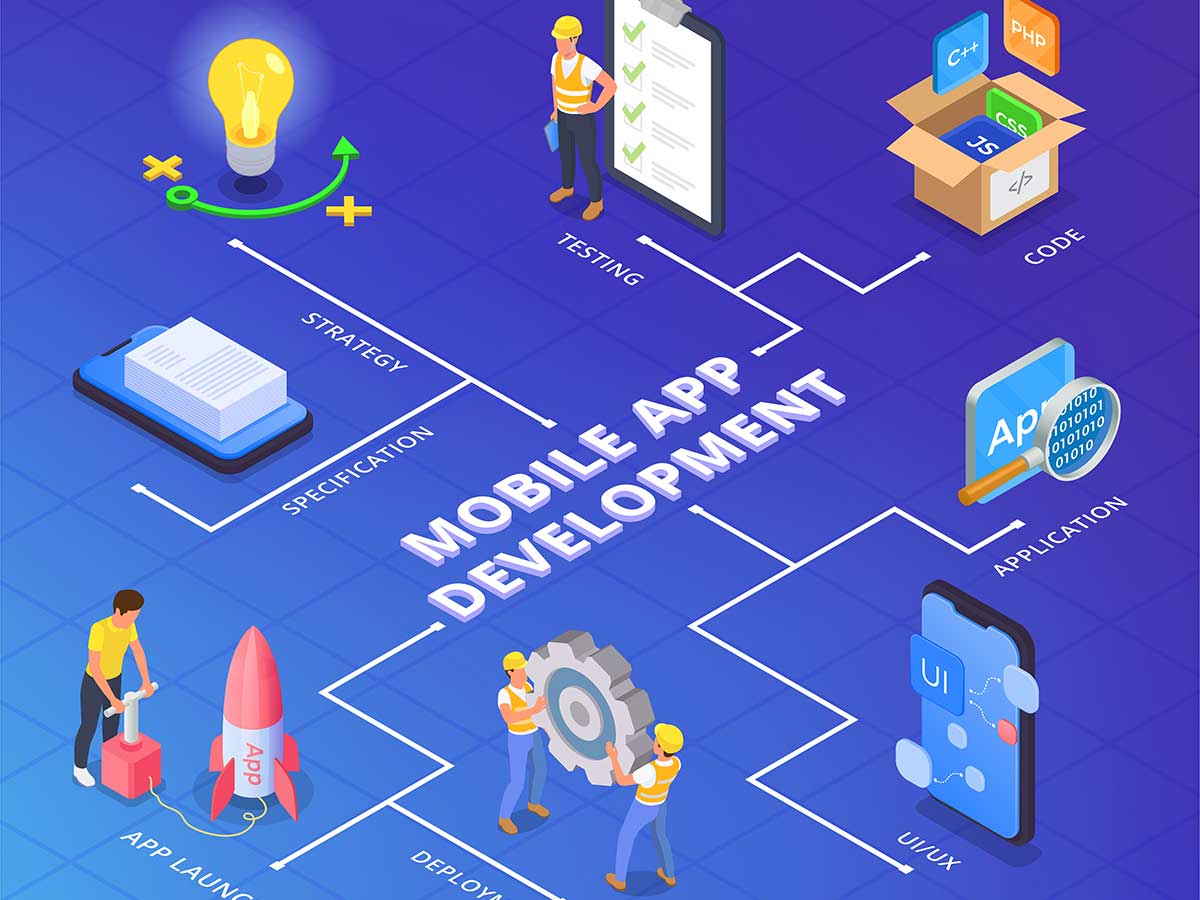In the quick-moving universe of versatile application improvement, the reconciliation of Man-made reasoning (man-made intelligence) isn't simply a pattern; it's an essential objective. Artificial intelligence has arisen as a strong impetus, reshaping the scene of portable applications and introducing another time of clever, versatile, and client-driven encounters. In this blog entry, we'll investigate the critical job that man-made intelligence plays in each phase of portable application advancement, from origination to organization.
1. Ideation: artificial intelligence Fueled Bits of knowledge for Imaginative Ideas
The excursion starts with ideation, and artificial intelligence contributes significant bits of knowledge by examining market patterns, client ways of behaving, and serious scenes. By saddling the force of AI calculations, designers gain a more profound comprehension of client needs, permitting them to conceptualize applications that resound with their ideal interest group.
2. Client Personalization: Creating Customized Encounters
One of the most significant effects of man-made intelligence in portable application advancement is found in client personalization. Artificial intelligence calculations examine client information, inclinations, and ways of behaving to convey profoundly customized content, suggestions, and encounters. Whether it's proposing applicable items or tweaking the UI, personalization improves client commitment and fulfillment.
3. Prescient Investigation: Expecting Client Aims
Man-made intelligence-driven prescient investigation changes portable applications into natural sidekicks. By examining verifiable information, artificial intelligence calculations can foresee client expectations, present logically significant ideas, and smooth out the client venture. This expectant methodology improves client fulfillment and energizes delayed application utilization.
4. Regular Language Handling (NLP): Raising Client Associations
The joining of NLP in versatile applications empowers normal and conversational collaborations. Chatbots, remote helpers, and voice-actuated highlights influence NLP to comprehend and answer client questions. This upgrades client accommodation as well as opens new roads for without-hands and voice-first collaborations.
5. Picture and Discourse Acknowledgment: Natural Intelligence
Man-made intelligence innovations like picture and discourse acknowledgment rethink client collaborations. Portable applications outfitted with these capacities can decipher visual and hearable sources of info, empowering functionalities like expanded reality, language interpretation, and voice orders. This cultivates a more natural and vivid client experience.
6. Upgraded Security: Shielding Client Trust
Simulated intelligence plays a significant part in reinforcing the security of portable applications. AI calculations recognize abnormalities, distinguish potential security dangers, and upgrade verification processes. By consistently adjusting to arising dangers, man-made intelligence guarantees that client information stays secure, encouraging confidence in the application's security highlights.
7. Robotized Testing and Troubleshooting: Smoothing out Improvement Cycles
The advancement lifecycle benefits essentially from computer-based intelligence-controlled instruments. Mechanized testing and investigating instruments driven by computer-based intelligence examine code, distinguish expected issues, and even propose enhancements. This speeds up the improvement cycle, permitting designers to zero in on imagination and development.
8. Client Commitment and Maintenance: Social Experiences
Computer-based intelligence investigation furnishes engineers with significant experience in client conduct. By understanding how clients connect with an application, engineers can pursue information-driven choices to upgrade highlights, further develop UIs, and enhance the general client experience. These bits of knowledge add to client maintenance and faithfulness.
9. Future Developments: Pushing the Limits
As artificial intelligence keeps on advancing, the eventual fate of portable application improvement holds energizing prospects. Developments, for example, feeling acknowledgment, simulated intelligence-produced content, and further developed normal language understanding are not too far off. Man-made intelligence isn't simply a device; it's a powerful power driving consistent development in the portable application space.
Decision: An Agreeable Combination of Simulated Intelligence and Application Improvement
The job of Man-made brainpower in portable application improvement goes past mechanization; it's a change in perspective that rethinks what's reachable. From ideation to client commitment and then some, artificial intelligence enables designers to make astute, responsive, and client-driven applications. As the cooperative energy among simulated intelligence and application improvement develops, we wind up at the very front of an extraordinary period, where the limits of versatile encounters are ceaselessly being extended, and the potential for development is vast. In this scene, achievement isn't just about conveying highlights; it's tied in with making encounters that consistently coordinate knowledge into the actual texture of portable applications.
